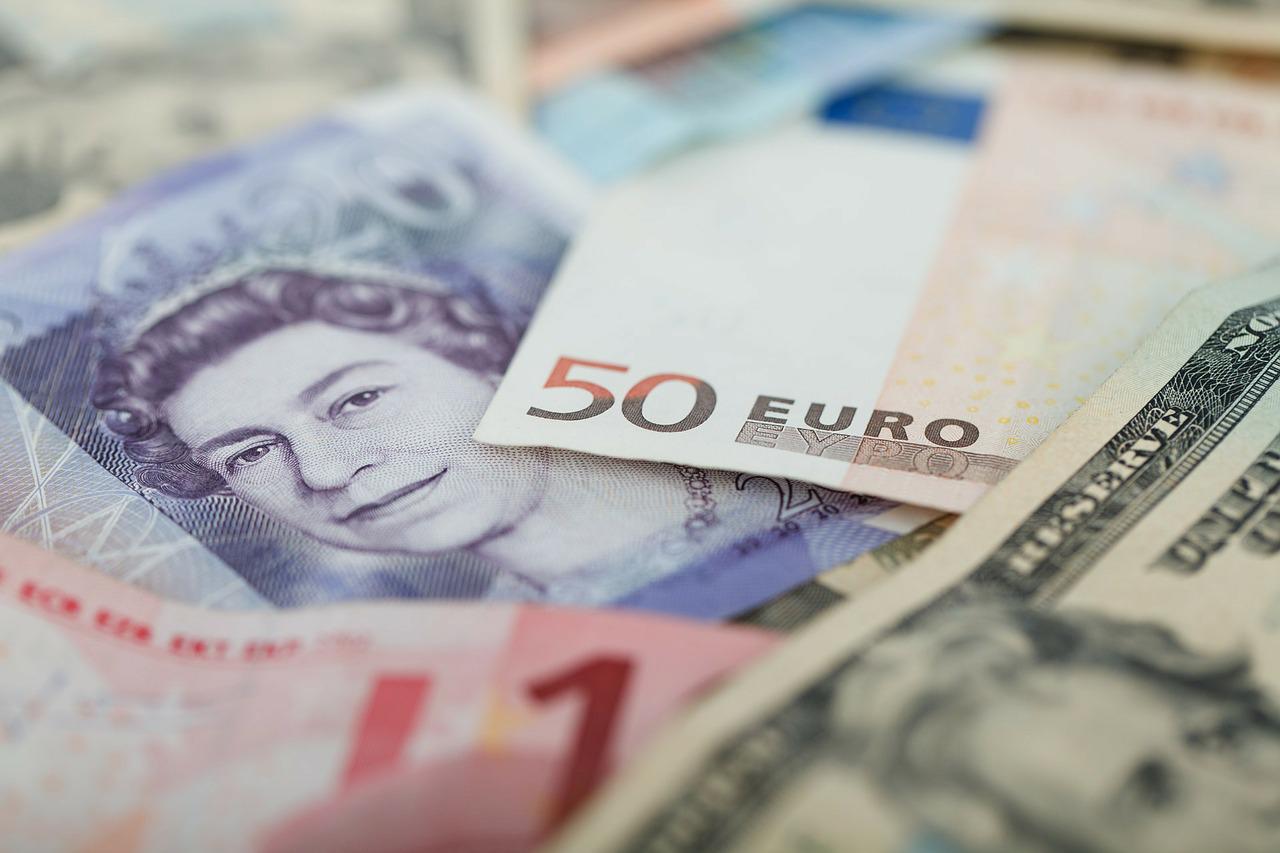The British Pound to Dollars trades at 1.23, at levels last seen in June 2020. GBP/USD hit a new low at 1.2261 on May 9, with a 7% inflation and BOE rate hike.

British Pound to Dollars at 1.2326 as Inflation Soars
The British Pound to Dollars is at a 2-year low, as it trades at 1.2326 during trading hours on Tuesday, May 10, 2022. After hitting 1.4250 in June 2021, the GBP/USD currency pair slid slowly, almost 13.5%, towards the 1.23 level in May 2022.
High inflation has hit the British economy hard. It is expected that the Bank of England may tighten monetary policy to bring down inflation in the next meeting too.
Inflation is at 30-year Highs
The inflation rate is at 7% in March. Fuel, energy, and grocery prices are at the highest levels.
The annual inflation in the United Kingdom is at a 30-year high of 7%. Bank of England increased interest rates by 0.25 basis points, taking the base interest rate up to 1%. It is the fourth consecutive rate hike as households in the United Kingdom are burdened with skyrocketing costs. Central banks across the globe have hiked interest rates to control surging inflation.
Data from the Bank of England states that GDP in England is broadly unchanged in the second quarter. It had increased 0.9% in the first quarter. Experts predict the fourth quarter to contract by almost 1%. Meanwhile, domestic gas and electricity may have a 40% hike by next year, state experts. It will hit household income considerably.
Bank of England expects inflation to rise to 10% levels this year. Experts predict that cost of living will rise faster than income, which will negatively impact the country.
Energy Crisis by Ukraine War
High energy costs are the chief culprits behind the rising inflation level in Britain. After the Russian invasion of Ukraine, global oil prices are up at record highs.
High electricity bills and gas prices have increased household expenses in March.
Russia’s war on Ukraine has brought surging inflation across global countries. The covid lockdown in China has brought fear into the minds of people. Demand has slowed in the world’s largest populated country, especially for fuel. Russia is the largest exporter of natural. But the UK raised sanctions against Russia to oppose the invasion of Ukraine. It has resulted in an energy crisis that hits the British economy, as demand for fuel has risen along with the cost price of oil and gas.
Prime Minister Boris Johnson is expected to release an energy strategy to utilize nuclear, wind, and solar energy, to meet the needs of his country. It will bring down the price pressure and reduce the dependence on power sources. Self-sufficiency in energy will bring in cheaper bills, says PM Johnson. The Johnson government faces heavy pressure to address the energy crisis immediately.
The Ukraine war continues, and the energy crisis hits hard on the British people. The UK government blames the Russian war for the energy crisis. Millions are thrown into poverty, and the food supply is going short. The government has to plan and provide to meet disruptions and emergencies.
During the covid-19 pandemic, the need for natural gas and oil nose-dived. But when life restarted, there is a huge spike in the demand and production of oil.
Economic Activity in Britain
Manufacturing PMI is at 55.8, higher than the previous level of 55.3. Manufacturing Services PMI (Purchasing Managers Index) is at 58.9, better than last month at 58.3.
Net lending month-on-month to individuals has gone up from 6.1 billion to 8.3 billion. Consumer spending has gone up, and rising debt levels indicate that consumers are confident about their financial position and lenders are willing to issue loans. These are signs that indicate industry expansion.
Consumer confidence is at a record low in April amid the energy crisis and high inflation in the United Kingdom, which has brought in slow economic growth. The Russia-Ukraine war has brought supply chain disruptions that have hit the British economy. The energy crisis has brought in high inflation. Commodity prices are looming higher, which is also the cause of high inflation.
The Dollar index is at a 20-year high as investors prefer to invest in the greenback as a safe haven. Demand for the DXY is high as high inflation hits every country and the economic downturn is a cause of worry for investors.
Major Currency Pairs
The US dollar index surged to 104.20 levels on May 9, 2022. The DXY is trading at levels last seen in 2002.
EUR/GBP currency pair trades at 0.8591 on May 6, 2022. The Euro to British Pound is clinging on to support levels.
GBP/JPY is at 160.32. The British Pound to Japanese Yen is trading stronger, at levels last seen in June 2016.